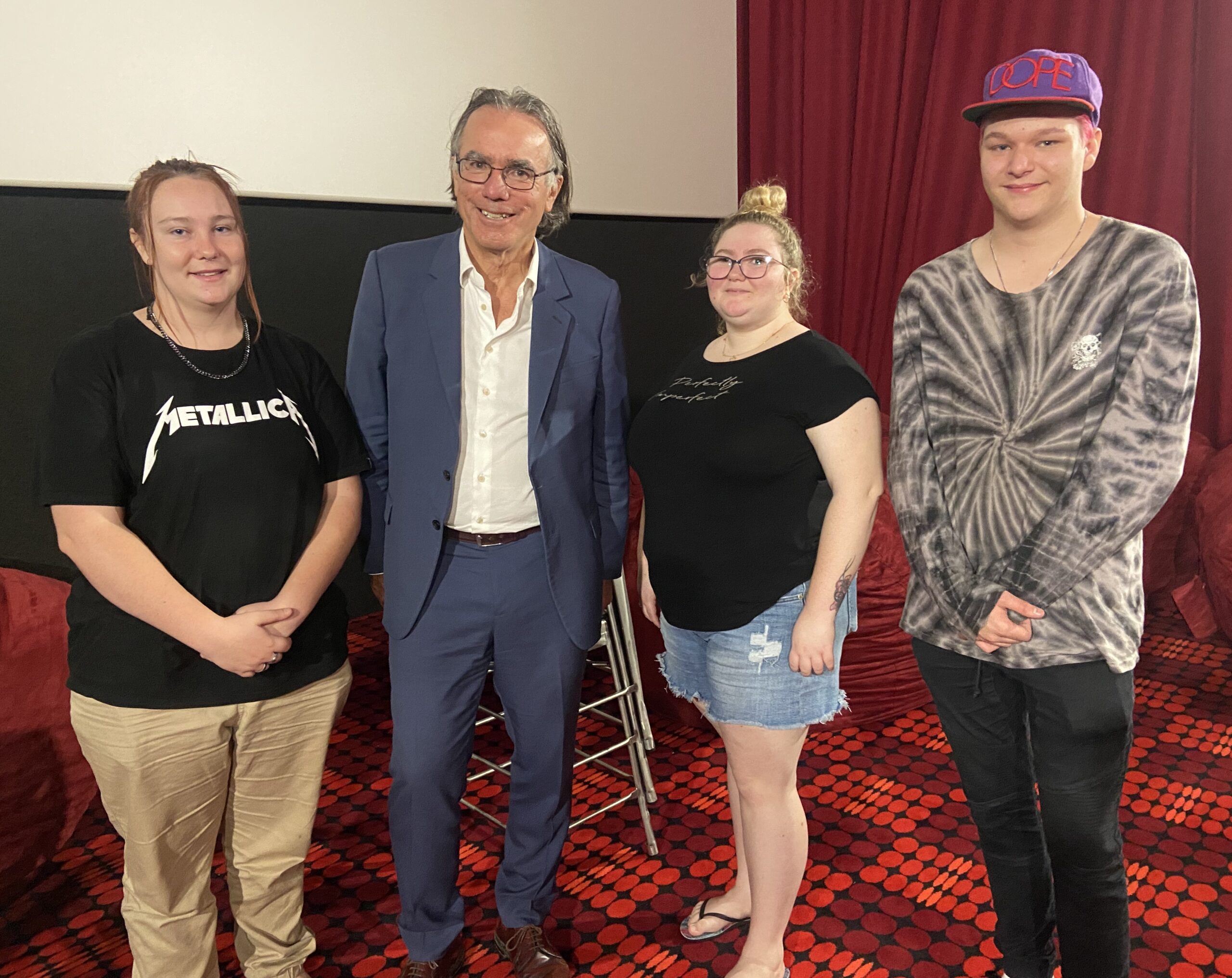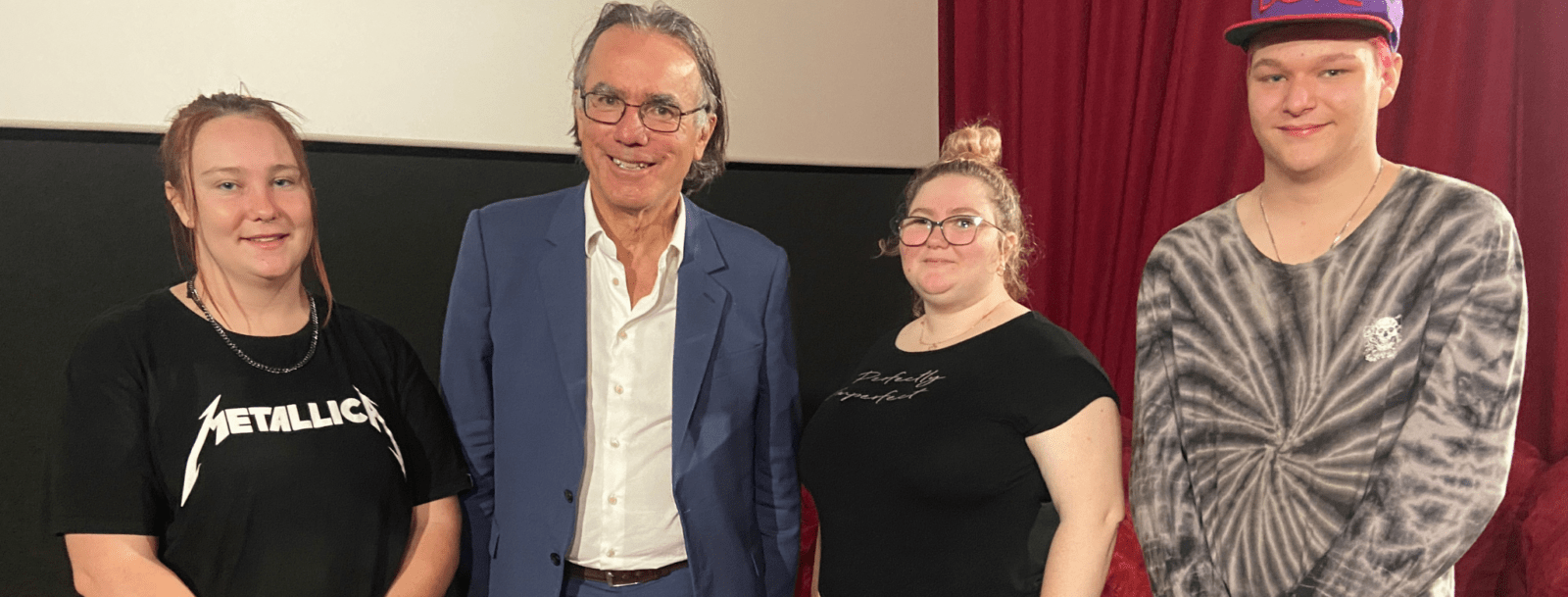In 2022, the Queensland Government responded to the voices of young people, agencies and foster care providers to increase post care support to young people leaving state care in Queensland, once turning 18.
Leading to this decision, Anglicare Southern Queensland was one of many agencies in Queensland advocating for change.
On 29 June 2022, Paul McDonald, the Chair of the National Home Stretch Campaign attended the Brisbane launch of a new series of videos, featuring the lived experiences of those in the foster care system.
Mr McDonald said the “humbling and confronting” videos were a direct message from the young people to the Queensland Government.
“Each of the young people tell a story of the struggle, the sense of abandonment they felt from care being ended when they were not ready, and the difficulties they had in starting life on their own after a childhood in care…” he said.
State care in Queensland after 18
In Queensland, residential care terminates when young people turn 18. The young people in this type of care arrangement are some of the most vulnerable. Young people in foster care and kinship care (living with a family member) weren’t much better off. Prior to the legislative changes, their care was terminated at the end of their 18th year.

When speaking at the event, Mr McDonald said, “The Queensland Government is effectively sanctioning the abandonment of 500 young people in their care each year. Most young people still live with their parents past the age of 18. Though in Queensland, children under the care of the State have to go out into the world and fend for themselves. Often with no responsible adults in their lives to give them any guidance. It’s no wonder that about a third of this group ends up homeless and jobless within 12 months of leaving care.”
Impacts of extended care
“Extended foster care…halves the homelessness rate among those exiting foster care. Additionally, it doubles their chances of finding a job and doubles their chances of going on to higher education.”
The series of two short videos was shown at the New Farm Cinemas on the final morning of the CREATE Foundation’s Voices in Action conference. Eleven young people were featured, and they discussed their immense challenges of having their foster care terminated at the age of 18. All were enthusiastic about the difference extending care could make to thousands of vulnerable young lives.
Jessie, who was featured in the video was placed in care at 14 and exited at 18. She’s since been studying human services. “Leaving care was quite challenging, to say the least. I know so many young people who exited care on the street. I watched that happening and it was really confronting,” she said.
“Not a lot of 15-year-olds that I have met outside of care are thinking about where am I going to live in two, three years’ time.”
The difference between surviving and thriving
Mr McDonald said the Government had a fantastic opportunity to what was right to expand ambition for children at risk.
“Extending care is the simplest and most effective reform the Queensland Government can make to transform these young lives for the better. It can be the difference between surviving and thriving, and it’s time the government got on with the job rather than giving us more talk,” Mr McDonald said.
“Extending care is a win-win-win. It’s a win for young people in foster care who have more time to get their lives on track. It’s also a win for the Queensland Government because it will ultimately save them money. It’s also a win for the community because it helps reduce crime.”
Anglicare was one of many organisations in support of the Home Stretch Campaign.
Research by Deloitte Access Economics showed the following benefits of extending care to the age of 21:
- Every dollar invested would return $5.90 in future savings
- Homelessness among this group would be halved
- Rates of higher education participation would increase by 2.5 times
- Decreased arrests and hospitalisation
- Alcohol and drug dependence would decrease, from 15.8 per cent to 2.5 per cent
- Reduced costs of delivering additional government services
- Improved mental and physical health outcomes, reduced intergenerational disadvantage and an increase in social connectedness.
Changes to State Care in Queensland as of June 2022
In June 2022, the Palaszczuk Government responded to the voices behind this campaign. They committed to fund the needs of vulnerable young people in state care in Queensland, to the age of 21. In 2023 this support took effect, helping our young people leaving care.
